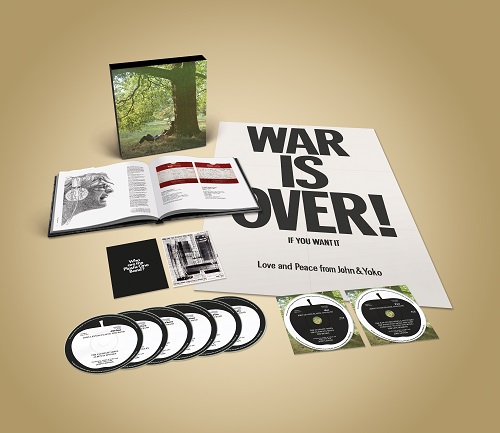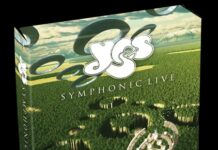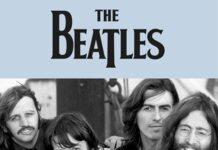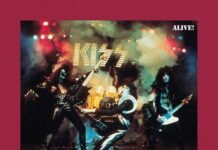Hot on the heels of 2020’s Gimme Some Truth. The Ultimate Mixes., which celebrated John Lennon’s 80th birthday, is another installment in the ‘Ultimate Collection’ series that marks the 50th anniversary of the singer’s first proper solo album: John Lennon/Plastic Ono Band. Remixed, remastered, and reconfigured, there’s 159 songs spread out over six CDs and two Blu-ray Discs packaged with all the usual accoutrements — photos, postcards, a “War is Over!” poster, and lots of reading material that tells the history of the album and guides listeners through each track and permutations thereof that fill the collection. The “mixes” of material — Ultimate, Outtakes, Demos, Elements, Raw, Live — are varied enough to keep you thoroughly immersed for days. For fans and followers of John Lennon, this is about as comprehensive and inclusive as it can get.
After the Beatles, a few experimental detours with wife Yoko Ono, and a live album of oldies, John Lennon decided it was time to vent and get a few things off his chest. He and Ono had already used the public arena in their own quirky way to ask the world to give peace a chance. It wasn’t enough. The fame, the riches, and the circus-like lifestyle led to a search for serenity. The Beatles’ time with the Maharishi in India didn’t measure up. In 1970, Lennon and Ono read The Primal Scream by Arthur Janov, then took up a few sessions of intense therapy with the author in England and Los Angeles. Never one to shy away from putting his feelings into song, Lennon tapped his newly opened emotions and a lifetime of pain and frustration channeled through John Lennon/Plastic Ono Band came oozing out.
Tracking through each song on the album is a chapter of turmoil in John Lennon’s life. Opener “Mother,” with its haunting funeral bells, and closer “My Mummy’s Dead,” address the sense of abandonment the future superstar felt when both his mother and father handed over the job of parenthood to the young boy’s aunt. Overpowering the piano, bass and drums, Lennon’s vocal on “Mother” stands as one of the rawest and honest ever captured on tape. The impact is even more apparent on the Elements mix, which isolates and enhances the vocal to a frightening intensity.
Lennon laments over the pressures of fame and fortune (“I Found Out,” “Isolation,”), and lets his trauma and cynicism come into full view on “Working Class Hero,” “Remember” and “God.” Dealing with his past juxtaposes life with Yoko (“Hold On” “Well, Well, Well,” “Love,” “Look At Me”), which leads one to believe that despite Lennon’s exit from Janov’s program, the songs on John Lennon/Plastic Ono Band ultimately eviscerated the demons and freed the ghosts that had been impeding his desire for a happy and normal life.
Getting past the back-story, you’ll want to explore the mixes more thoroughly to really appreciate the nooks and crannies of composition and recording of the album. Discussion, rougher takes, raw mixes, and demos of each song offer an insider’s view of the process. Acoustic versions of “Love” and “Look At Me” provide a more intimate feel, while the second take of “Well, Well, Well” is much looser than what landed on the album. Take 27 of “God” vividly captures the extraordinary piano work of both Lennon and Billy Preston. An outtake of the same song reveals the framework without delving too far into the denotation.
The Elements mixes are effective in bringing certain instruments that may have been buried or not all that prominent in the original mixes to the fore. The congas on “I Found Out” punctuate the rhythm, and the heavy organ on “Isolation” intensifies the drama. And if you’re not convinced Klaus Voorman is as good of a bass player as he is artist, just track through any song on the collection he’s anchoring. Between him and Ringo Starr, the engine room couldn’t have been more complimentary to wherever Lennon took the melody.
You could spend a week dissecting the shades and variances of the songs in their stages of development. Lennon had the freedom to experiment and change the arrangements to suit his mood — with the blinds rolled up, you’ll experience an earful enough to make you feel like you were there every step of the way. To hear him utter something about “heavy metal” before a raunchy run though “Well, Well, Well” ensures his credibility with a community unaware of how just how heavy John Lennon could get.
The set, which also includes numerous versions of “Give Peace A Chance,” “Cold Turkey,” and “Instant Karma,” veers off into a delightful jamathon featuring slices of “Johnny B. Goode,” “Ain’t That A Shame,” totally galvanizing stabs at Carl Perkins’ “Honey Don’t” and “Matchbox,” bits pieces of numerous Elvis Presley songs, and other off-the-cuff standards. The jams indicate that for all the pain and suffering Lennon exuded on the final product, he never lost his love for rock and roll.
The last portion of the set features sessions from the Yoko Ono/Plastic Ono Band album, recorded at the same time as John Lennon/Plastic Ono Band. Definitely not for the meek of heart, it’s hard to turn away from transcendental rolls in the hay like “Greenfield Morning I Pushed An Empty Baby Carriage All Over The City” and “Paper Shoes,” and not feel a tinge of smug satisfaction. For all the naysayers who dismiss Ono’s ability to sing, “Remember Love” and “Who Has Seen The Wind” might sway your judgement. Lennon was right when he said years later that the B-52s and other fringe new wavers were inspired by his wife’s free-form approach to making music.
John Lennon/Plastic Ono Band — The Ultimate Collection meets up with every expectation you need from an expanded edition of a classic record and then some. Obviously, there are other configurations if you only want to hear a glossier mix of the album. If you can spare the time and patience, the eight-disc set, which includes a 5.1 surround sound mix of the other six discs on two Blu-ray Discs, is possibly the most overarching, in-depth collection of its kind. After hours of concerted listening, you might feel like you experienced the same transformative effects of primal therapy John Lennon and Yoko Ono did 50 years ago.
~ Shawn Perry




















